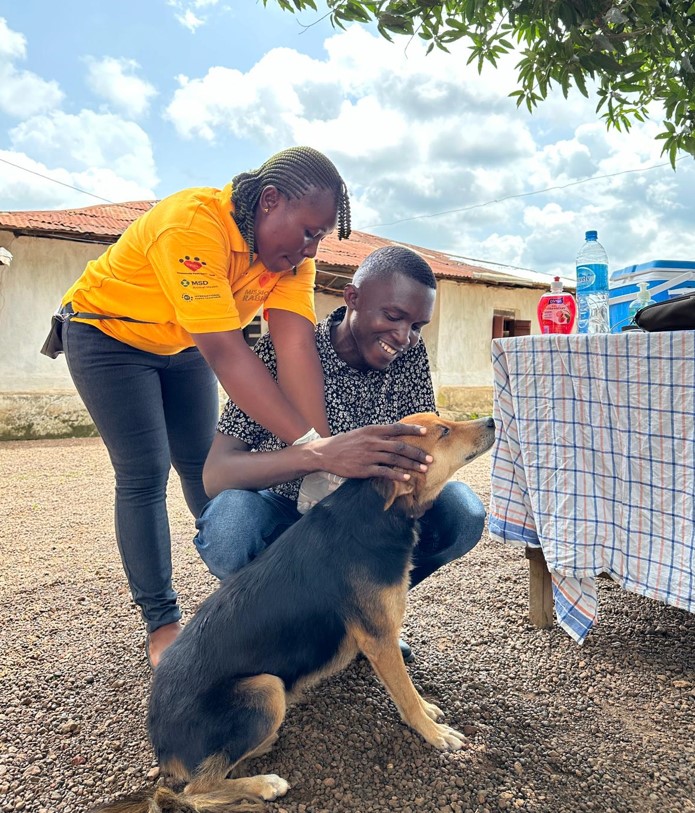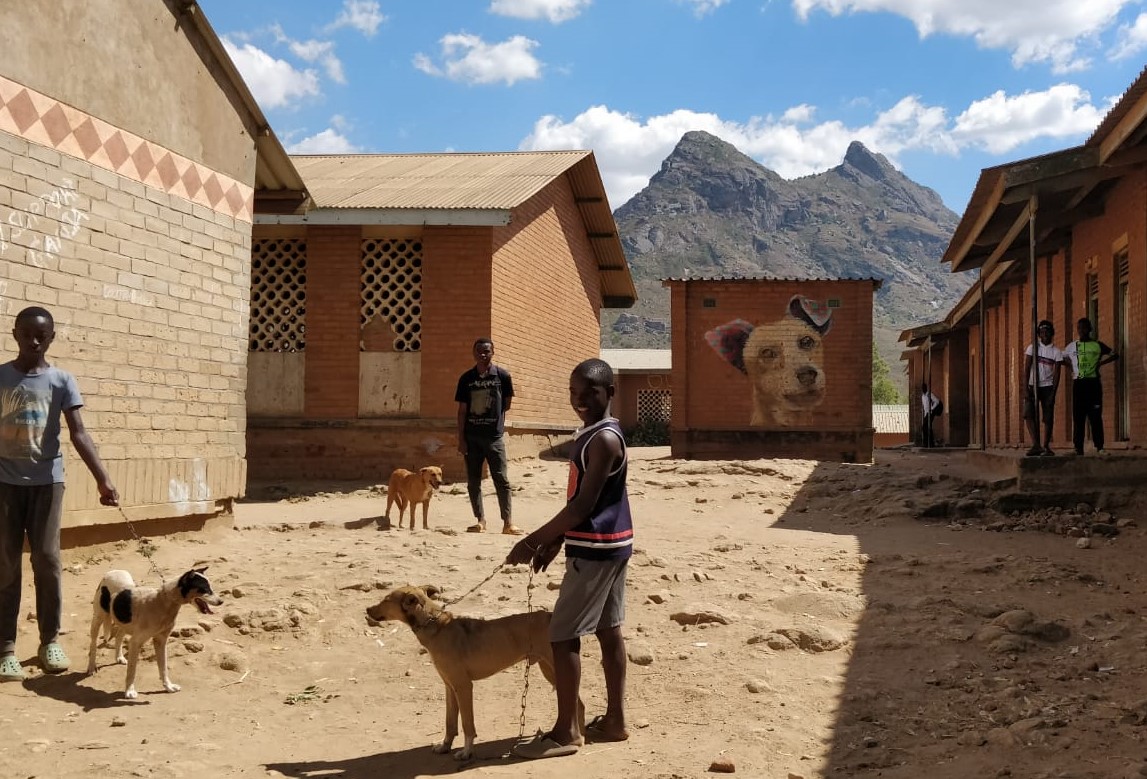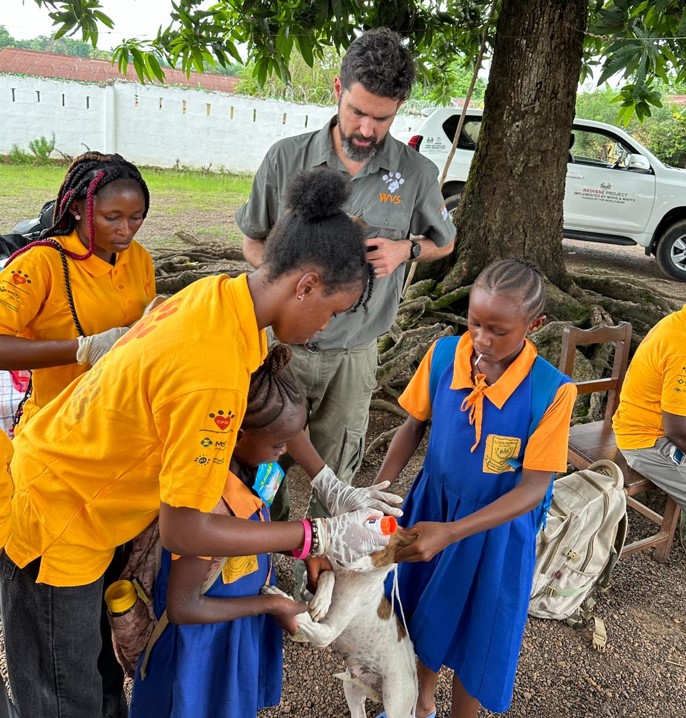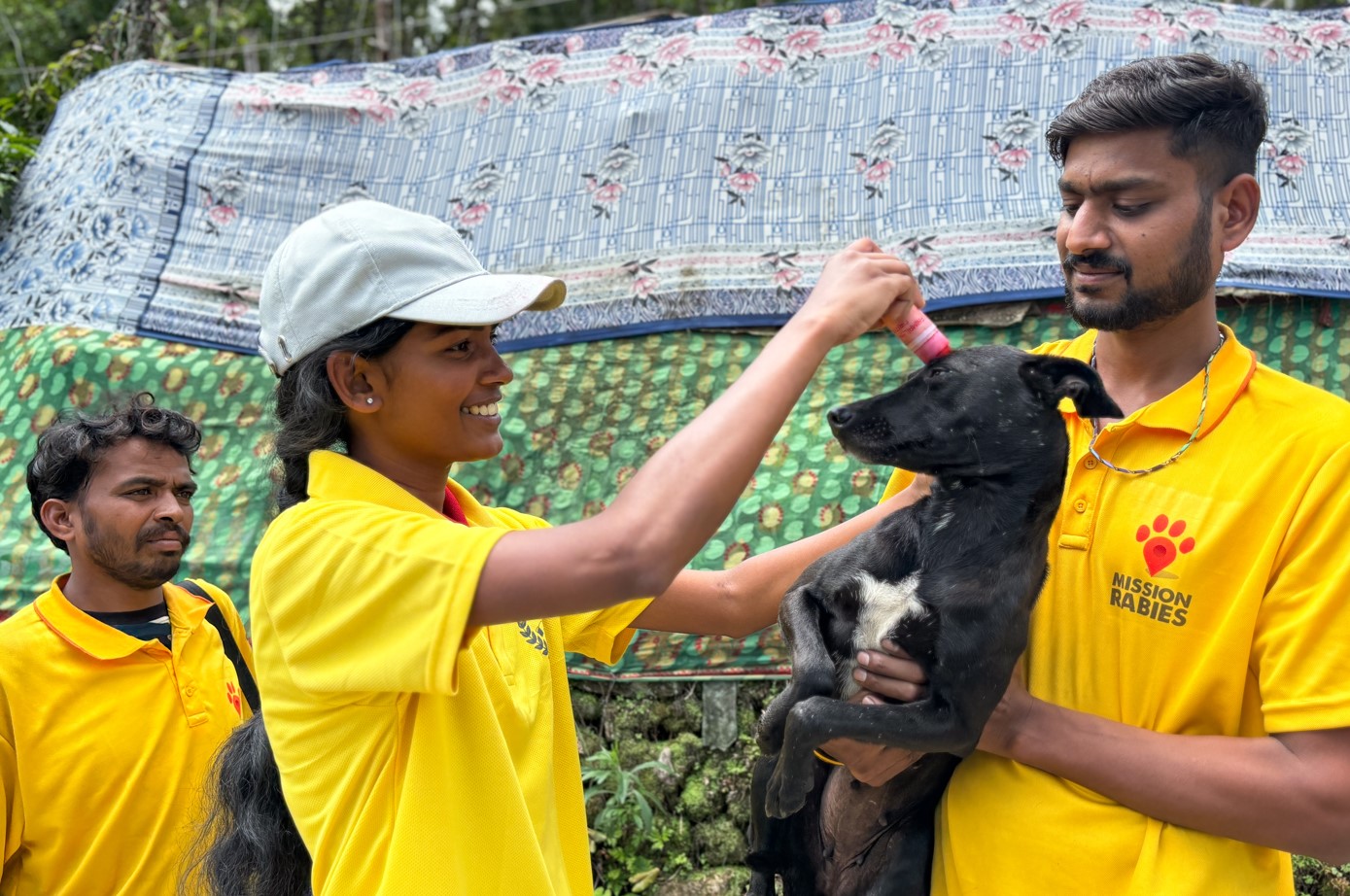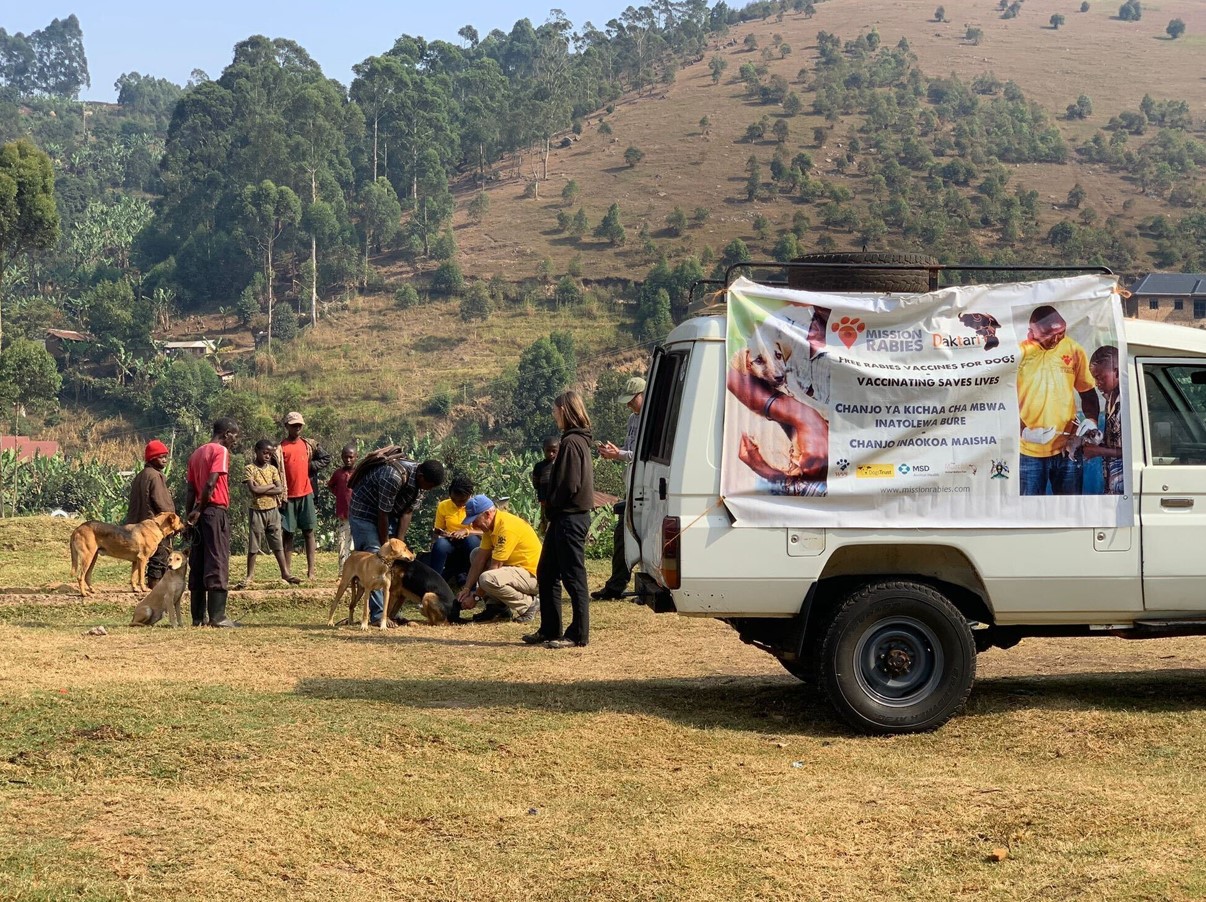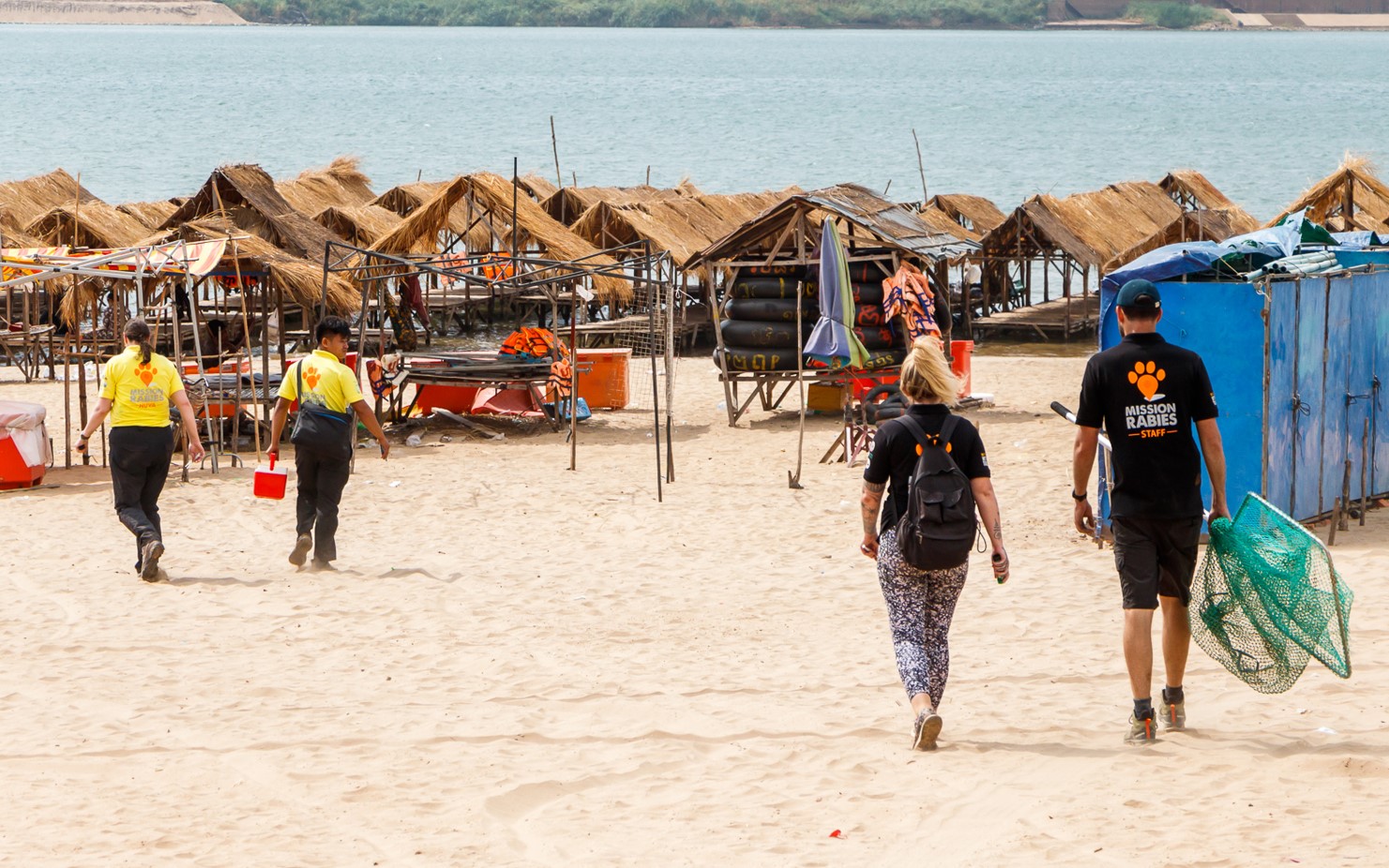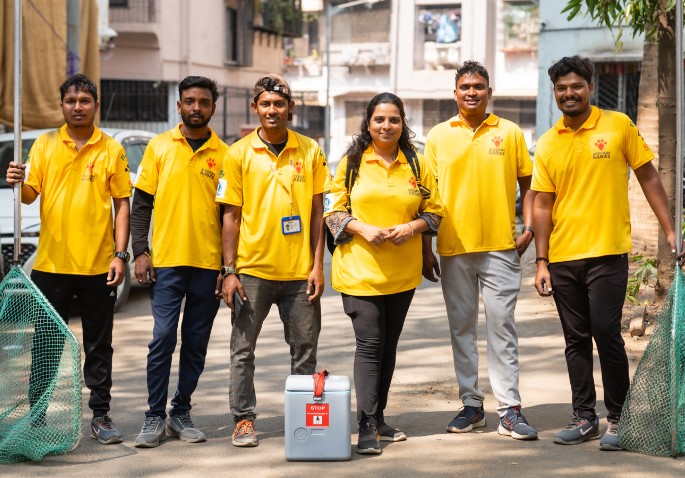Stopping rabies at the source: The mass vaccination of dogs in rabies affected areas
Why dogs?
If you are new to Mission Rabies, you may be wondering why we focus our mass vaccination campaigns on our waggy tailed friends…
This is because dogs serve as a reservoir for the disease and are the main source of transmission to humans. In fact, you may be surprised to learn that more than 99% of all human rabies deaths globally are the result of an infected dog bite.
Therefore, to stop the spread of rabies we need to stop dogs catching it in the first place.
We aim for a 70% vaccination coverage in rabies hotspots ever year to achieve herd immunity, keeping dogs and people safe from this deadly disease. We combine different approaches to achieve this, including mass vaccination drives, door to door visits, and static point clinics.
The human rabies vaccine is often inaccessible either due to distance or cost, and it only protects one person. While it plays a vital part in the elimination of rabies, it is not enough to protect communities against rabies in its own right and doesn't address the source of the problem: canine rabies. That is where we come in!
With World Zoonoses Day coming up on Saturday 6th July, learn more about our vaccination process and hear about some of our recent campaigns below.
Our vaccination process: catch – vaccinate - mark - release
Interested in knowing more about our vaccination process?
There are a few key stages which are outlined below.
Catching a furry friend: In the areas in which we work, many dogs will let us or their owner hold them for vaccination (sometimes they need to be won over by a treat or two!). For the hard to catch dogs, that are not used to being handled by people, we have skilled animal handlers who use catching nets. This is the safest way to catch a free roaming dog. We always aim to carry out the entire process of catch – vaccinate – mark - release within 60 seconds to minimise the stress for our four-legged friends!
A life-saving vaccination: The administration of the vaccination is quick and painless, over in just a few wags of the tail. The vaccine we use is safe for dogs of all ages and can be given under the skin (subcutaneously) or directly into the muscle (intramuscularly). It is important that as many dogs as possible receive the vaccination to help towards achieving a 70% vaccination coverage – stopping this deadly disease in its tracks and protecting human and animal lives.
Marking and data input: You may have noticed in our project photos a red or green mark showing on a dog’s head and are wondering why. This is because every dog vaccinated is marked with a brightly coloured animal-friendly paint (which washes off after several days). This mark helps our teams to quickly identify a vaccinated dog as we work our way through an area, and is especially helpful in locations with a large free roaming dog population. After receiving their life-saving rabies jab, information about every dog is entered into our bespoke data collection ‘rabies app’. This provides us with valuable data that feeds into the management of vaccination campaigns in real time.
Release and repeat: After vaccination, free roaming dogs are released back to the exact area in which they were found, and owned dogs remain with their owners. A single vaccine should provide immunity for at least three years, but we vaccinate annually to ensure vaccination coverage is maintained. By maintaining 70% vaccination coverage every year, we can eliminate rabies from a dog population – protecting dogs and helping to keep whole communities safe.
Vaccination in action: our latest campaigns
10th annual vaccination campaign in Blantyre, Malawi
Between 4th May and 2nd June 2024, we completed a mass dog rabies vaccination drive in Blantyre City, Malawi, working alongside the Department of Animal Health and Livestock Development. This was our 10th annual vaccination campaign in the city and a total of 26,861 dogs were successfully vaccinated, helping to protect the health of residents and their pets.
We began the project in Blantyre in 2015, after the Queen Elizabeth Hospital recorded the highest number of child rabies deaths from any institution across the whole of Africa. We have been working tirelessly to change these statistics. Our success at reducing deaths from rabies in this context has been reported in The Lancet medical journal, and our vaccination and education programmes have expanded into surrounding districts to enable the protection of further at-risk communities.
Keeping communities safe in Sierra Leone, West Africa
Between 28th May and 6th June 2024, a vaccination campaign was delivered in Bo city, the 3rd largest city in Sierra Leone. We worked in conjunction with local partners including Compassionate Paws Sierra Leone, Njala University, and the Government of Sierra Leone, to administer 4,936 life-saving canine rabies vaccinations. The campaign focused on the North of the city and an average vaccination coverage of 83% was achieved.
In the lead up to the project, an education campaign was delivered to raise awareness about the dangers of rabies, how to stay safe around dogs, and to encourage members of the community to bring animals for vaccination.
Kicking rabies out of Kodaikanal, India
From 24th – 31st May, we worked alongside Kodaikanal Society for the Protection and Care for Animals (KSPCA) and other partners to deliver a one-week intensive dog vaccination drive in Kodaikanal, a hill town in the southern Indian state of Tamil Nadu. During the one-week project, six teams worked incredibly hard to successfully vaccinate 3,751 dogs against rabies, covering several key regions.
A dedicated team of 45 volunteers and staff from various NGOs, including HAS Coimbatore, ASRA VFA, HOPE Aurangabad, CARE Bangalore, and Lyka Dindigul, came together – all committed to ensuring the well-being of both street and owned dogs. As part of the campaign, the general public were educated about rabies prevention, necessary precautions after a dog bite, and the importance of responsible pet ownership.
The campaign received tremendous support from the local government and municipality, highlighting a strong community partnership, and stands as a testament to collective dedication towards building safer, healthier communities.
Coming up soon and how to get involved
Uganda: In July and August 2024, we will be returning to continue vital work within the communities of Kabale district, near to Bwindi Impenetrable National Park, in Uganda. Work commenced in this area of Uganda in 2019 after we identified a need to protect the communities surrounding Bwindi Impenetrable National Park, as well as the park's resident endangered Gorilla population. We will be joined by a group of dedicated volunteers to help deliver this campaign and ensure that as many dogs as possible are given these vital vaccinations. If you are interested in volunteering with us in Uganda in 2025, you can register your interest to be the first to hear when applications are open.
Cambodia: Later this year, we will be returning to Phnom Penh in Cambodia to run our second province-wide vaccination campaign. Over the course of the two weeks, we will be providing life-saving protection to the 2.3 million residents who call the province home, working closely with dedicated local government and charity partners, along with other volunteers from around the world. During last year’s project, our teams vaccinated a total of 74,983 dogs across Phnom Penh and Kandal Provinces, achieving an average of 70.3% vaccination coverage across the districts of Phnom Penh Province! The second week of our 2024 project is now fully booked for volunteers, but there are few final places remaining for volunteers in week one. Further information can be found here.
Mumbai: From 26th February to 1st March 2024, we delivered an intensive vaccination drive across Mumbai and surrounding cities in India. A total of 26,951 animals were vaccinated during the project which was carried out in partnership with Brihanmumbai Municipal Corporation (BMC), neighbouring municipalities, local NGOs, and many other dedicated partners. We were also joined by a brilliant crew of volunteers who travelled from near and far to support this life-saving mission. In 2025, we will return to Mumbai for another huge project and will be recruiting passionate volunteers who are dedicated to helping stop this cruel disease. Applications will open in the coming months but in the meantime you can register your interest and we will be in touch once full details are announced.
Join the fight against rabies
Subscribe to our mailing list to hear updates on our upcoming projects, learn more about volunteering with us, or make a life-saving donation to ensure more communities can be protect from the world’s deadliest disease.
